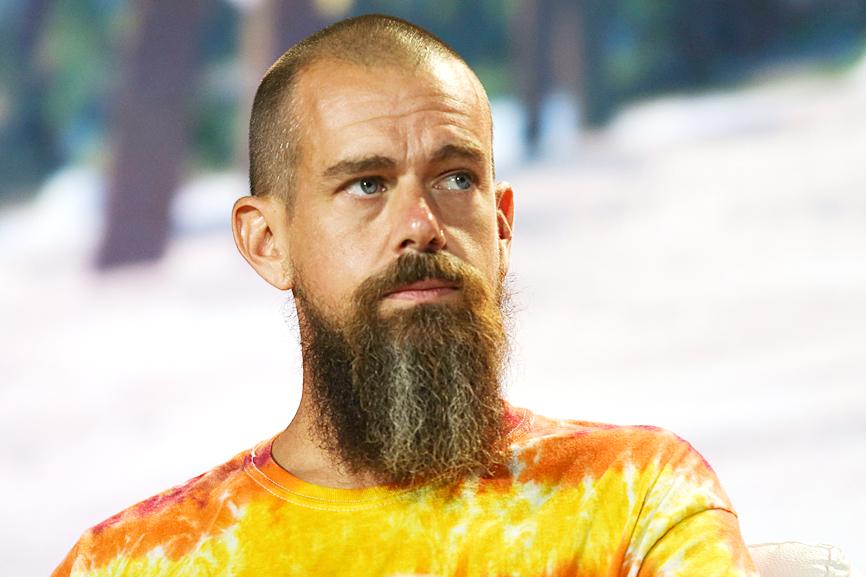Digital payments firm Square Inc, which was cofounded and is led by former Twitter Inc chief executive officer Jack Dorsey, on Wednesday changed its corporate name to Block, as it expands into cryptocurrency and other financial technology tools.
The Square payments platform — which was the company’s sole offering when it was founded in San Francisco by Jim McKelvey and Dorsey in 2009 — would keep its name, and the now-public company would continue to trade under the symbol “SQ.”
Square started out providing small businesses with devices that plug into smartphones or computer tablets to process credit or debit card payments.

Photo AFP
The company has since expanded to include Cash App and rapper Jay-Z’s music streaming service Tidal.
“We built the Square brand for our Seller business, which is where it belongs,” Dorsey said in a release. “Block is a new name, but our purpose of economic empowerment remains the same.”
The corporate name change is meant as a nod to the company’s growth, and would not involve organizational restructuring, the company said.
Facebook Inc in October changed its corporate name to Meta Platforms Inc in a similar move, while Google years ago took on the corporate name Alphabet Inc.
“Not to get all meta on you ... but we’re going to!” Square said in a Twitter comment under a Dorsey tweet about the name change.
“Block references the neighborhood blocks where we find our sellers, a blockchain, block parties full of music, obstacles to overcome, a section of code, building blocks, and of course, tungsten cubes,” it said, adding that the name also represents an overarching ecosystem of businesses.
Square has announced that it is working on a wallet for holding digital money, and Dorsey recently expressed interest in the company getting involved in mining cryptocurrency.
An initiative at the company that had been called Square Crypto would change its name to Spiral.
Earlier this week, Dorsey announced that he would leave Twitter, after steering the social network during the tumult of former US president Donald Trump administration and surviving an activist investor’s ouster bid last year.
Dorsey came under pressure from Elliott Management Corp amid concerns that he had spread himself too thin by running both Twitter and Square.
Twitter chief technology officer Parag Agrawal has assumed Twitter’s top post, with Dorsey saying that he would remain a member of the board until about May next year to help with the transition.

Intel Corp chief executive officer Lip-Bu Tan (陳立武) is expected to meet with Taiwanese suppliers next month in conjunction with the opening of the Computex Taipei trade show, supply chain sources said on Monday. The visit, the first for Tan to Taiwan since assuming his new post last month, would be aimed at enhancing Intel’s ties with suppliers in Taiwan as he attempts to help turn around the struggling US chipmaker, the sources said. Tan is to hold a banquet to celebrate Intel’s 40-year presence in Taiwan before Computex opens on May 20 and invite dozens of Taiwanese suppliers to exchange views

Application-specific integrated circuit designer Faraday Technology Corp (智原) yesterday said that although revenue this quarter would decline 30 percent from last quarter, it retained its full-year forecast of revenue growth of 100 percent. The company attributed the quarterly drop to a slowdown in customers’ production of chips using Faraday’s advanced packaging technology. The company is still confident about its revenue growth this year, given its strong “design-win” — or the projects it won to help customers design their chips, Faraday president Steve Wang (王國雍) told an online earnings conference. “The design-win this year is better than we expected. We believe we will win

Chizuko Kimura has become the first female sushi chef in the world to win a Michelin star, fulfilling a promise she made to her dying husband to continue his legacy. The 54-year-old Japanese chef regained the Michelin star her late husband, Shunei Kimura, won three years ago for their Sushi Shunei restaurant in Paris. For Shunei Kimura, the star was a dream come true. However, the joy was short-lived. He died from cancer just three months later in June 2022. He was 65. The following year, the restaurant in the heart of Montmartre lost its star rating. Chizuko Kimura insisted that the new star is still down

While China’s leaders use their economic and political might to fight US President Donald Trump’s trade war “to the end,” its army of social media soldiers are embarking on a more humorous campaign online. Trump’s tariff blitz has seen Washington and Beijing impose eye-watering duties on imports from the other, fanning a standoff between the economic superpowers that has sparked global recession fears and sent markets into a tailspin. Trump says his policy is a response to years of being “ripped off” by other countries and aims to bring manufacturing to the US, forcing companies to employ US workers. However, China’s online warriors